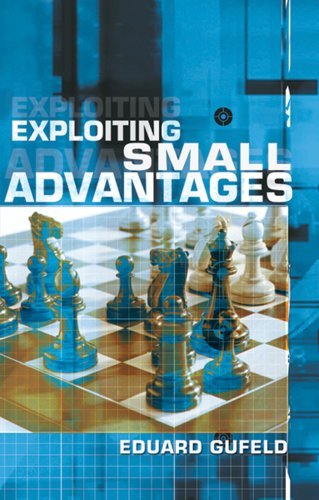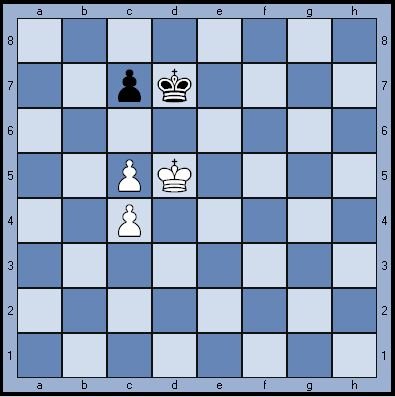Exploiting Small Advantages, Eduard Gufeld

The idea of writing a book on this topic occurred to me back in my youth. I recall how in a certain tournament two 'venerable* candidate masters agreed a draw in the following position:

At first sight there was nothing surprising in this, since the position appears completely drawn. And yet White has an original way to win: 1 c6+! Ke7 2 Kc5 Kd8 3 Kb4! Kc8 4 Kb5 Kb8 5 Kc5! Ka7 6 Kd4 Ka6 7 Ke5 Kb6 8 Kd5 Ka6 9 Ke6, and the king invades decisively at d7.
It was only much later that I learned that a similar winning method had been found by the remarkable Soviet analyst Nikolai, Grigoriev.
There is undoubtedly a close and mutually fruitful connection between study composition and endgame theory. But a study is an artificial work. The composer's ideas are embodied only after lengthy analysis and searchings, which are crowned by a happy discovery. But to find a single, study-like way to win under practical playing conditions is extremely difficult.
A modern-day chess game very often demands precise mastery in exploiting a minimal advantage. In a battle between two players who are roughly equal in strength, the accurate and by no means straightforward realization of a small advantage is practically the only chance of gaining a win. It is a long time since the era of dashing attacks, the result of which was often the creation of unsightly pawn islands. The standard of average players has grown considerably, enabling them to compete fairly competently and surely against opponents who are slightly superior to them in practical strength, experience and knowledge. And therefore a mastery of typical methods of exploiting a minimal advantage is a necessary condition for achieving success.
Author: Eduard Gufeld
Title: "Exploiting Small Advantages"
Released: 2003
Format: rar/pdf
Quality: good
Number of pages: 49
Size: 3 Mb
Comment 0